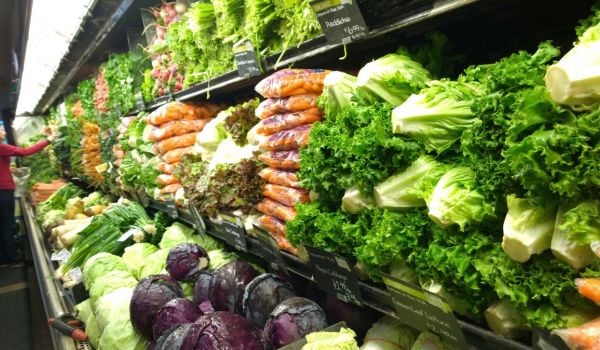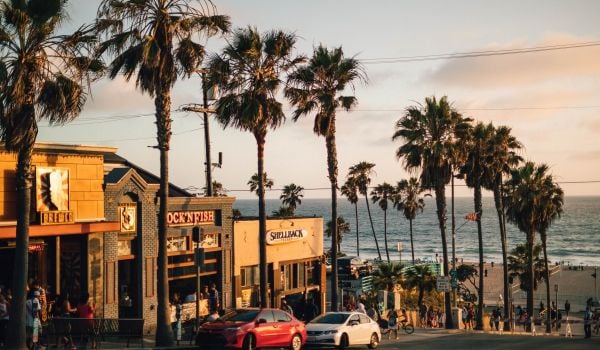An old school bus is operating once again in service of education — and the classroom is South Los Angeles.
Nonprofit Community Services Unlimited (CSU) last weekend unveiled its Veggie Bus project, along with breaking ground on the Paul Robeson Community Wellness Center. The upcycled bus is part workspace and classroom, part seed library and plant nursery, and a small piece of CSU’s broader vision for readily available produce and living-wage jobs in South L.A.
CSU had converted the diesel bus to run on vegetable oil years ago, and used it to get to workshops and urban farm sites, and to teach people about diesel conversions and sustainable transportation. Though the bus eventually broke down for good, CSU staff decided rather than scrapping it, they would once again retrofit it to their needs — in this case, to serve as an additional workspace and a plant nursery at the community center they’re building.
CSU won a $10,000 grant from the L.A. chapter of the U.S. Green Building Council (USGBC-L.A.) to complete the Veggie Bus. Using upcycled materials, they kitted out the bus with solar panels and new flooring. They re-used some of the original bus benches as well as some church pews for seating in the workspace. The solar battery and workspace tables came from IRS Demolition, a company that salvages material from building demolitions.
“USGBC L.A. is looking beyond just how to promote sustainably in the building community. We’re looking at how to do it in community at large. CSU is working in sustainability as well as economic and social revitalization. Helping them make their dream come true with the Veggie Bus was perfect,” says Maya Henderson, of USGBC L.A.
CSU was founded in the ’70s by the Southern California chapter of the Black Panther Party. As its name implies, the organization existed to serve South L.A.’s needs with things such as medical screenings and meal programs. CSU Executive Director Neelam Sharma says their work has evolved to focus more on self-supported resiliency in the community. A big part of that is creating a sustainable food system.
As is often the case in low-income communities, South L.A. suffers from a lack of grocery stores. The L.A. Weekly reports that as of 2015, South L.A. has 0.57 grocery stores per every 10,000 people compared to West L.A.’s 1.03 stores per 10,000 people. The paper also reports that poverty is higher now in parts of South L.A. than it was 25 years ago.
“There’s not the availability of good, affordable, fresh, culturally appropriate food,” says Sharma. “That has been the situation in South L.A. a long time. The big corporate grocery stores open, take a lot of tax credit, then close and go away a few years later.”
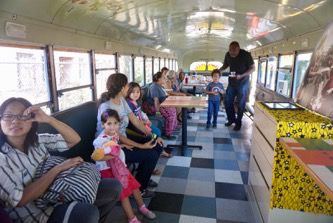
(Credit: USGBC Los Angeles)
They held onto it trying to figure out a new use. When CSU bought the Paul Robeson Community Wellness Center in 2015, they decided the Veggie Bus would become part of the new development. The community center will have event and workshop space, a cafe, an urban farm, a kitchen for the catering business and a produce market.
Henderson says the Veggie Bus’ connection to the broader impact of CSU’s new community center contributed to USGBC L.A.’s selection of it for a grant.
“Getting the Veggie Bus completed helps kick off what they’re doing with the building redevelopment,” Henderson says. “There’s lots of development happening in the community and lots of talk of gentrification, unaffordability and bad development practices. CSU is showing how to work with the community and do development right.”
To Sharma’s mind, doing it right often means doing it yourself. “We’ve passed that era where we can sit around and wait for things to happen,” she says. “We just have to make them happen. Communities know what their needs are, and they’ve worked tirelessly to make this happen.”
CSU is aiming to open the Paul Robeson Center in March.

Josh Cohen is Crosscut’s city reporter covering Seattle government, politics and the issues that shape life in the city.
Follow Josh .(JavaScript must be enabled to view this email address)

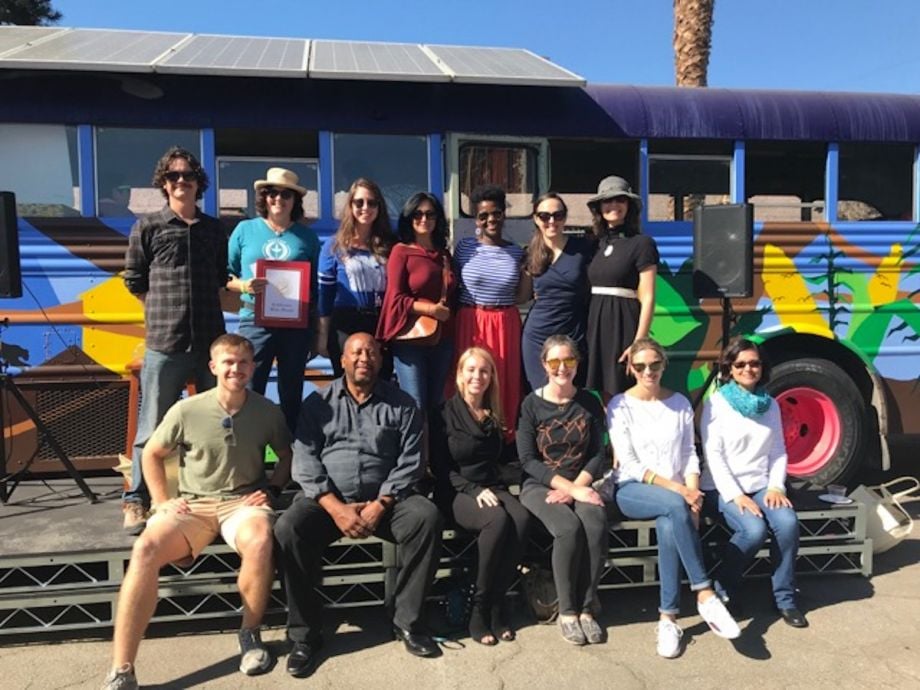
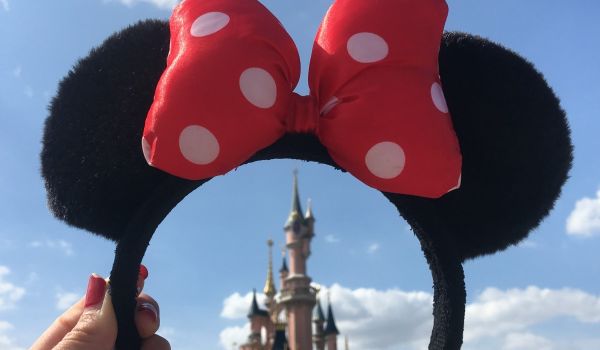

_920_518_600_350_80_s_c1.jpg)


